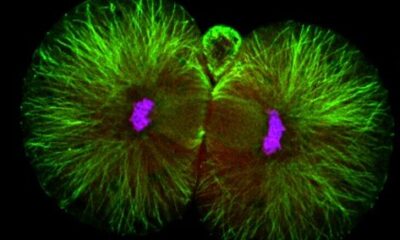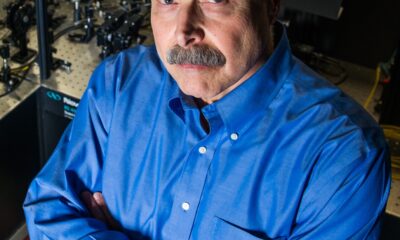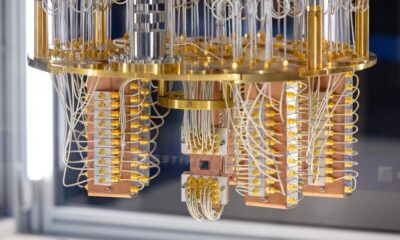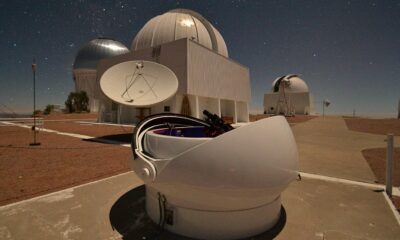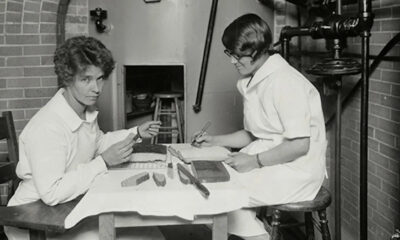Education
Caltech and University of Chicago Host Landmark AI+Science Conference
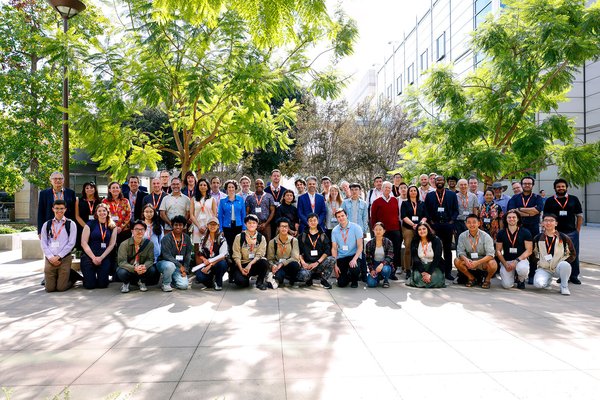
The second Conference on AI+Science unfolded on November 10 and 11, 2025, at Caltech and the University of Chicago, drawing attention to the transformative role of artificial intelligence (AI) and machine learning in advancing scientific discovery. Held both in-person and online, the event emphasized the integration of AI across various domains, including the physical and biological sciences.
Supported by the Margot and Tom Pritzker Foundation, the conference also marked the announcement of the inaugural winners of the Margot and Tom Pritzker Prize for AI in Science Research Excellence. Tom Pritzker, Co-Founder of the foundation, noted, “Over the years, Margot and I have come to believe that science is where our philanthropy can have its most enduring impact.” He emphasized the foundation’s commitment to fostering innovation through AI, highlighting the potential of science to drive progress across generations.
Innovative Discussions and Recognitions
Renowned speakers at the conference showcased how advances in AI algorithms are reshaping research trajectories in fields such as physics, biology, health, neuroscience, climate, and robotics. Videos of all presentations are now available on the conference website.
Anima Anandkumar, Bren Professor of Computing and Mathematical Sciences at Caltech and co-organizer of the conference, opened the event by expressing gratitude to the Pritzkers for their vision. She also reflected on Caltech’s rich history in AI, which can be traced back to early courses taught by influential figures such as Richard Feynman and Carver Mead. Anandkumar outlined her vision for AI as a catalyst for scientific breakthroughs, emphasizing the need to overcome experimental bottlenecks in research.
Highlighting her work on “neural operators,” she described how this machine learning architecture enhances AI’s ability to simulate and control physical experiments. These tools have demonstrated significant success in areas like weather forecasting and medical device design.
On the first day, Margot Pritzker announced the recipients of the Pritzker Prize: Kyle Cranmer, a professor at the University of Wisconsin–Madison, and Debora Marks, a professor at Harvard Medical School. Cranmer discussed the pivotal role of machine learning in experiments at the Large Hadron Collider in Geneva, including insights into the Higgs boson. Marks focused on AI’s revolutionary impact on human genetics.
Rebecca Willett, co-chair of the AI+Science Initiative, remarked on the challenge of selecting the winners, stating, “They are not only using AI to analyze scientific data but are also identifying areas where current methodologies fall short, expanding the scope of AI tools.”
Advancements in Diverse Scientific Fields
The conference featured a strong emphasis on the application of AI in physics and climate science. Presentations included contributions from experts such as Pedram Hassanzadeh, Chris Bretherton, and Laure Zanna, who discussed significant advancements in AI weather modeling.
Notable progress has been made with FourCastNet, the first AI-based weather model launched nearly four years ago. AI-driven models are now integral to premier weather agencies, assisting farmers in India during monsoon seasons and enhancing long-term climate forecasting through sophisticated simulations.
In the realm of biology and chemistry, Frances Arnold, a co-recipient of the 2018 Nobel Prize in Chemistry, illustrated how AI can synergistically advance molecular optimization for enzyme development. Other speakers, including Arvind Ramanathan from Argonne National Laboratory, showcased how AI is aiding biological research, including the design of new enzymes and pandemic response.
Further discussions explored the intersection of neuroscience and AI. Richard Andersen from Caltech presented breakthroughs in brain-machine interfaces, while Wei Gao discussed AI’s role in medical diagnostics through innovative biosensors.
The event also offered opportunities for networking and collaboration, drawing attendees from various sectors, including academia, philanthropic organizations, federal agencies, and private companies. Anandkumar expressed her enthusiasm for fostering collaboration among diverse scientific disciplines, stating, “I was thrilled to bring people together from diverse areas of science who see AI as a unifying force that will catalyze further collaborations in the future.”
As the conference concluded, the momentum generated around the intersection of AI and scientific inquiry promises to continue driving innovations that could reshape our understanding of the world.
-

 Technology5 months ago
Technology5 months agoDiscover the Top 10 Calorie Counting Apps of 2025
-

 Technology2 weeks ago
Technology2 weeks agoOpenAI to Implement Age Verification for ChatGPT by December 2025
-

 Health3 months ago
Health3 months agoBella Hadid Shares Health Update After Treatment for Lyme Disease
-

 Health3 months ago
Health3 months agoAnalysts Project Stronger Growth for Apple’s iPhone 17 Lineup
-

 Health3 months ago
Health3 months agoErin Bates Shares Recovery Update Following Sepsis Complications
-

 Technology5 months ago
Technology5 months agoDiscover How to Reverse Image Search Using ChatGPT Effortlessly
-

 Technology3 months ago
Technology3 months agoElectric Moto Influencer Surronster Arrested in Tijuana
-

 Technology2 months ago
Technology2 months agoDiscover 2025’s Top GPUs for Exceptional 4K Gaming Performance
-

 Technology5 months ago
Technology5 months agoMeta Initiates $60B AI Data Center Expansion, Starting in Ohio
-

 Technology5 months ago
Technology5 months agoRecovering a Suspended TikTok Account: A Step-by-Step Guide
-

 Health5 months ago
Health5 months agoTested: Rab Firewall Mountain Jacket Survives Harsh Conditions
-

 Lifestyle5 months ago
Lifestyle5 months agoBelton Family Reunites After Daughter Survives Hill Country Floods

